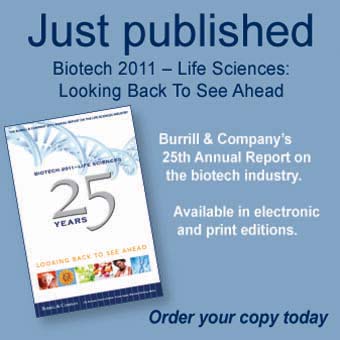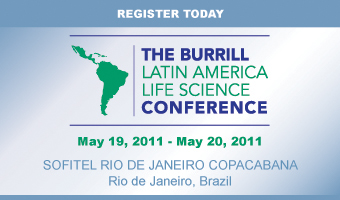“I believe that what we are announcing today is nothing less than the transformation of Teva’s business.”
Teva Pharmaceuticals will buy Cephalon for $6.8 billion, an offer $1.1 billion sweeter than Valeant Pharmaceuticals’ hostile tender takeover bid just one month ago. Teva will pay $81.50 per share in cash for Cephalon, representing a 39 percent premium to Cephalon’s stock price on March 29, the last closing price before Valeant’s unsolicited bid.
Shlomo Yanai, Teva’s CEO, calls it a game-changer for Teva, which will be not only the world’s largest generic drug company, but also one of the world’s largest specialty pharmaceutical companies.
“I believe that what we are announcing today is nothing less than the transformation of Teva’s business,” said Yanai in a conference call following news of the deal.
Teva’s long-term strategy, announced in 2010, has two key goals: growing its global generics business and transforming its branded business into a diverse specialty pharmaceutical business with a portfolio of products.
Beginning with its 2008 acquisition of Barr Pharmaceutical, Teva has largely focused on acquiring generics companies with small branded components. With Cephalon, the Israeli pharma will acquire a brand company with a generics component—Mepha. Cephalon acquired Mepha in late 2010, giving it a strong presence in Switzerland, Eastern Europe, Africa, and Latin America.
“Cephalon’s presence in key growth markets—Europe, Asia, and Latin America—will strengthen Teva’s global branded footprint,” says Yanai. “But the most important aspect of this deal is the way it will transform Teva’s branded business.” He also notes that Mepha will provide additional synergies and momentum to Teva’s growth in Europe. Teva bought German generics firm Ratiopharm in 2010 for $4.9 billion to expand its European presence.
In February, Teva revealed its plan to grow its branded revenues to more than $9 billion in 2015 from $4.6 billion in 2010. With its acquisition of Cephalon, the combined branded portfolio will represent about $7 billion in sales and include more than 30 compounds in late-stage development, including three for which the company has already filed applications for regulatory approval.
The deal will also help Teva diversify its revenue stream, lessening its dependence on Copaxone, the multiple sclerosis drug that contributes 70 percent of its branded drug revenues.
Cephalon’s pipeline in CNS and respiratory products will strengthen Teva’s position and expand its foothold in these areas, while Cephalon’s pain management and oncology business, in which Teva presently has no established commercial franchise, will diversify its business.
Concerned that its main revenue driver, Nuvigil, would soon come off patent, Cephalon has itself been on a buying spree, snapping up Swiss generic pharma Mepha for $590 million in December 2010 and snapping up cancer drug developer GeminX and Australian biotech ChemGenex in March. It took a 20 percent stake in Australian biotech Mesoblast and entered into a potential $2 billion licensing and collaboration agreement to use its adult stem cell technology for CNS and cardiovascular diseases.
When Valeant expressed interest in buying the company it built, Cephalon urged its shareholders to refuse the Canadian company’s offer as unfairly valuing its R&D pipeline.
Teva says it expects significant revenues from the first day of closing and expects to realize annual cost synergies of at least $500 million in the third year following the transaction’s close. Teva plans to finance the transaction through cash on hand, lines of credit, and the public debt market. Subject to regulatory approval, Teva expects to complete the transaction in the third quarter of 2011.
Shares of Cephalon were up 5 percent on the news, while Teva shares added 3 percent.
TEVA PHARMACEUTICALS' GROWTH PATH
Source: Burrill & Company| Year | Target | Price (USD M) |
Focus | Description |
| ACQUISITIONS | ||||
| 2011 | Cephalon | 6,800 | Biopharma | Teva agrees to buy Cephalon for $81.50 a share, 39 percent above Cephalon's trading price at the end of March when Valeant made its hostile $5.7 billion bid. The deal will build Teva's branded and specialty pharmaceuticals business. |
| 2011 | Corporacion Infarmasa (Peru) | N/A | Generics | Teva acquires one of Peru's top pharmaceutical companies with more than 500 marketed products. |
| 2010 | Ratiopharm (Germany) | 4,920 | Generics | Teva acquires Germany's second largest generics maker for $4.92 billion |
| 2010 | Theramex (Merck KGaA- Germany) | 367 | Women's health | Teva will acquire Theramex and related companies from Merck Serono for $367 million at closing plus potential performance-based milestone payments |
| 2010 | Mediwound (Israel) | 163 | Wound healing | Teva increases its ownership stake in Mediwound to 51 percent to gain access to wound healing products |
| 2009 | Taisho Pharmaceutical (Japan) | N/A | Generics | Teva's Japanese joint venture acquires two-thirds stake in Japanese generics firm |
| 2008 | Barr Pharmaceutical | 9,000 | Generics | Teva acquires Barr, the fourth largest generic drug company worldwide for cash and stock, valuing Barr at $7.46 billion, a 32 percent premium to its average closing price for the 52-week period before the announcement. Teva will also assume about $1.5 billion in Barr net debt. |
| PARTNERSHIPS | ||||
| 2011 | P&G | N/A | Over-the-counter drugs | Partnership in consumer health care that will include a joint venture that combines the companies' OTC businesses in all markets outside North America. |
| 2010 | Mersana Therapeutics | 334 | Oncology | Teva granted exclusive worldwide license (ex-Japan) to develop and commercialize XMT-1107, pre-clinical novel fumagillin analog, for all indications |
| 2010 | Mediwound (Israel) | 167 | Wound care | Teva gets exclusive rights to market Polyheal's product for $167 million plus royalties |
| 2010 | Cell Cure Neurosciences (BioTime) | 29 | Ophthalmology | Exclusive license option to develop and commercialize Cell Cure's ESC-derived retinal pigment epithelial cells for treatment of AMD; Teva makes $2 million equity investment in Cell Cure and will pay $1 million fee if it exercises the license option |
| 2010 | Champions Biotechnology | N/A | Oncology | Champions will use its Biomerk Tumorgraft platform to test anti-tumor effectiveness of undisclosed Teva compound |
| 2010 | Auspex Pharmaceuticals | N/A | Deuterium drug | Teva will develop and commercialize mid-stage Auspex deuterium containing compound |
| 2009 | OncoGenex | 430 | Oncology | Global license and collaboration to develop and commercialize OGX-011 phase 3 cancer therapy to enhance chemotherapy. OncoGenex will get $60 million upfront, including $10 million equity investment, plus potential milestones and royalties. |
May 02, 2011
http://www.burrillreport.com/article-teva_swoops_in_to_snag_cephalon_for_6_8_billion.html






.gif)
